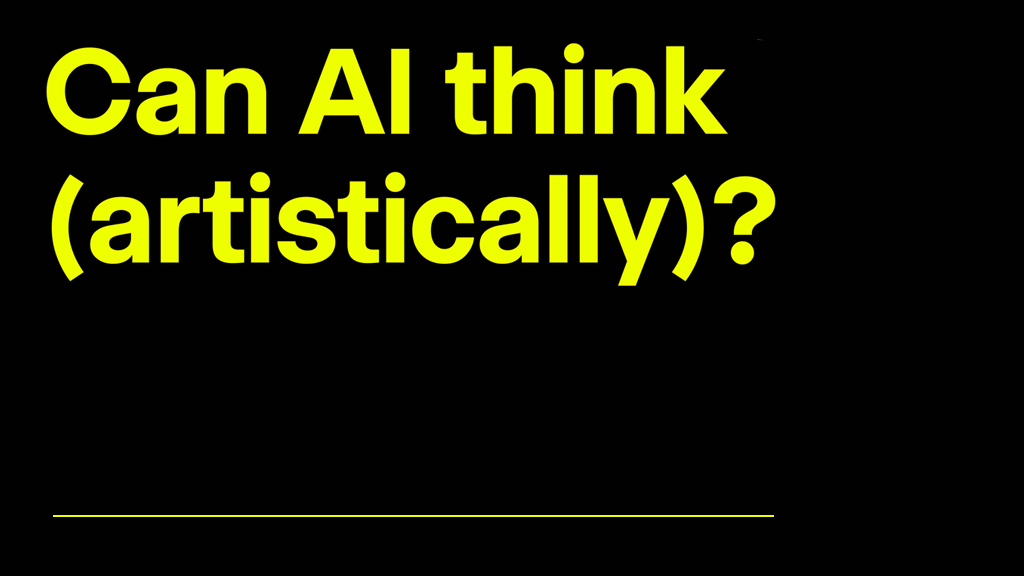

23.10.2025 | Katrin Schröder
Can AI think (artistically)? - AI and its Risks to Knowledge
The lecture series “Can AI think (artistically)” opens up a joint testing ground for the question of whether and how AI works artistically. We invite guests from the arts and sciences to discuss the artistic potential of AI in concrete projects and theories. The focus is on the (historical) conditions and processes under which a poetics can be asserted, as well as the political and material foundations of artistic practice through statistical renderings. The lectures combine insights into work processes with critical analysis of infrastructure and responsibility, and frame the work in the accompanying seminars.
Accompanying the lecture series is a theoretical seminar (Elisa Linseisen) and a practical seminar (Friedrich von Borries, Alexander Doudkin) in which students will use, test, hack, and reinterpret the AI platform https://art-of-x.com
All lectures will take place digitally and will be streamed on Big Blue Button:
October 14, 2025, 6 pm
Introduction
With Prof. Dr. Friedrich von Borries, Prof. Dr. Elisa Linseisen und Alexander Doudkin
October 21, 2025, 6 pm
„Intellectual Furniture. Elements of a Deep History of Artificial Intelligence“
Prof. Dr. Markus Krajewski, media historian, University of Basel
October 28, 2025, 5 pm
„AI and its Risks to Knowledge“
Dr. Sascha Fink, philosopher, FAU Erlangen (Hosted by AdBK Nuremberg)
November 11, 2025, 18 Uhr
„What does creativity have to do with AI?“
Dr. Martha Kunicki, philosopher, Princeton University
November 18, 2025, 6 pm
„Fynn, the AI student“
Marcin Ratajczyk & Chiara Kristler, artists, Vienna
November, 25, 2025, 6 pm
„AI as a tool for artistic practice?“
Christian von Borries, filmmaker, Marseille
December 2, 2025, 6 pm
„Art Intelligence—two years later…“
Prof. Jan Svenungsson, artist, die Angewandte, Vienna
December 9, 2025, 6 pm
„Do AI‘s dream of climate chaos?“
Iris QU, artist and programmer, New York
December 16, 2025, 6 pm
„Visual worlds of AI“
Dr. Wolfgang Ullrich, art historian, Leipzig
January 6, 2026 , 6 pm
„Queer KI“
Emily Martinez, artist, Los Angeles and Dr. Sara Morais dos Santos Bruss, Berlin
January 13, 2026, 6 pm
„Lissy Pony, Aissist und andere Ansichten aus der Praxis“
Elisabeth Varn, Geschäftsführerin Burda Verlag
January 20, 2026, 6 pm
„Sociopolitical relevance of AI“
Prof. Dr. André Frank Zimpel, psychologist, University of Hamburg, and Prof. Dr. Tanja Kubes, sociologist, FU Berlin
January 27, 2026, 6 pm
Final discussion with all participants